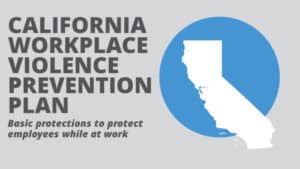
Kate from San Mateo writes: Working in the male-dominated tech field can feel like navigating a proverbial “boys club.” I often feel pressured to participate in rowdy after-work social hours in order to build and maintain relationships with prospective mentors, and sometimes overhear talk of male coworkers’ latest rounds of golf with a mutual supervisor. I don’t know whether my career has been directly impacted by the social alienation I experience, but I can’t help but suspect that it might be. Do employment discrimination laws cover this kind of professional fraternizing? What can I do to change this discriminatory culture within my organization?
Thanks, Kate, for your important question, which points to a grey area of employment discrimination law that undoubtedly contributes to the persistence of a “glass ceiling” in many male-dominated industries. Informal “off-duty” activities and relationships can indeed have major impacts on career opportunities, often to the detriment of “out-group” employees. Included employees may enjoy increased access to supervisors, customers, or other influential actors, and those excluded may suffer the stress of alienation or inconsistent participation in necessary job-related communications. Unfortunate results may include lower job performance evaluations or denial of favorable opportunities based entirely on non- job-related personal impressions.
Unfortunately, no employment discrimination statute directly addresses these informal components of the “glass ceiling.” Since the Supreme Court has only narrowed its interpretation of discrimination laws in the past two decades, it appears that many cases will continue to fall through the legal cracks until Congress or the state legislature enacts new laws to fill them.
As you may know, certain kinds of sex-based workplace discrimination are legally prohibited by Title VII of the Civil Rights Act (“Title VII”), a federal law, as well as California’s Fair Employment and Housing Act (“FEHA”). Title VII addresses discrimination based on sex, race, color, national origin, and religion by employers of 15 or more employees. California’s FEHA goes further, protecting not only employees, but also job applicants, unpaid interns, volunteers, and contractors in organizations with 5 or more employees, and additionally applies to discrimination based on ancestry, medical conditions, marital status, gender identity or expression, age, sexual orientation, and military/veteran status.
These anti-discrimination laws prohibit employment practices that (1) treat or impact classes of employees differently, (2) create a hostile work environment, or (3) retaliate against whistleblowers who take action to address workplace discrimination. If unlawful discrimination is proved, an employee may recover back pay, other compensatory damages (e.g. reputational harm or emotional distress in certain cases), punitive damages if justified by an employer’s malicious conduct, placement into a rightful job position or equivalent, or injunctive orders for the employer to reform structural discrimination within the organization.
Where these laws apply, they can make great strides to make an injured employee “whole” by remediating past discrimination. However, courts will only provide remedies for discriminatory practices that adversely impact the “terms, conditions, or privileges” of employment (“TCP”), such as hiring, firing, compensation, changes in job position, employment benefits, and opportunities for job training and apprenticeship.
Informal relationship building and mentorship do not in themselves qualify as TCPs. Therefore, neither Title VII nor FEHA provides a remedy for a “boys club” culture unless discriminatory practices can be shown to: (1) functionally replace a TCP, as when meals or other amenities are paid for by the employer; (2) lead directly to more concrete discriminatory actions, as when the opportunity to apply for a promotion is only announced during off-duty activities; (3) constitute a pattern of exclusion significant enough to create a hostile work environment; or (4) act as whistleblower retaliation sufficient to discourage protected workplace challenges.
Building a successful case in any of these circumstances will prove a challenge given the federal judiciary’s current pattern of narrow holdings in employment discrimination cases. If you think you may have a case under any of these legal theories, I suggest you contact an experienced employment discrimination attorney.
Whether or not you think you have a legal claim under Title VII or FEHA, the first place to start is filing a complaint with your organization’s human resources department. Even if legal remedies prove elusive, there are many internal changes an organization can make to prevent or mitigate an exclusionary culture. While privacy concerns bar employers from interfering with most off-duty activities, employers may regulate activities that can be logically linked to an employee’s performance or to the organization’s public image.
If an exclusionary culture deflates employee morale enough to impact either job performance or the employer’s reputation, the organization would be wise to, for example, impose barriers to fraternization between supervisors and employees over whom they have decision-making power. An employer may also choose to provide managerial training on bias and inclusion, or institute formal and regular channels of communications through which employees may voice concerns.
By attorney Christopher B. Dolan, owner of the Dolan Law Firm. Email Chris questions and topics for future articles to help@dolanlawfirm.com
We serve clients across the San Francisco Bay Area and California from our offices in San Francisco, Oakland, and Los Angeles. Our work is no recovery, no free or also referred to as contingency-based. That means we collect no fee unless we obtain money for your damages and injuries.










